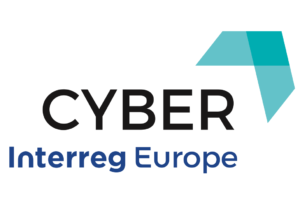CYBER Night is a regional dissemination event based on the model of the Breton ‘BreizhCTF’ (1-day practical workshops followed by a 1-night hacking competition) with the aim of getting better access to the cyber community. Each regional partner in Interreg CYBER Europe is in charge of organising a Cyber Night at the regional level during the life of the project. Ethical hacking, one of the key methods of ensuring information security for both critical infrastructure and businesses, involves hackers performing security checks, penetration tests or risk analyses. Ethical hacking best illustrates the practical orientation of the cybersecurity field. In this article, we review the successes of a few recently organised Cyber Nights.

Capture the Flag: CYBER Night at University of Salamanca, Spain
Capture the Flag, the CYBER Night planned in the Castilla y Leon region event was held at the campus of the University of Salamanca on September 29th, 2019, with the support of the Bioinformatics, Intelligent Systems and Educational Technology Research Group (BISITE) and the information technology services company Viewnext.
30 university students participated in 15 teams of two. Most were IT students from the Region of Castilla y León, with the participation of some from other regions of Spain or non-technical studies.
“The Capture the Flag cyber-exercise has been a great opportunity to bring together future cybersecurity experts with current ones in a playful but highly technical way. All of this took place in the excellent setting of the University of Salamanca, in parallel with a forum that attracted top-level specialists, and was a real boost to increase interest, knowledge and, with it, the prospects of our regional talent. It was great to see this event generate so much interest among the youngest cyber enthusiasts” – Ricardo Ramos Valdivieco, R&D and Innovation Project Manager, Innovation and Entrepreneurship Department, Institute for Business Competitiveness of Castilla y León.
The Capture Flag (CTF) exercise included a series of IT challenges focused on cybersecurity, with different levels of difficulty, addressing various cybersecurity disciplines including: Web Hacking, Cryptography and Steganography. The organisation provided three technical assistants to support the participants and answer any questions that arose during the day. At the end, an expert explained the solution to each challenge.
CYBER Night at Digital Innovation Hub of Slovenia
The Slovenian edition of the CYBER Night was organised by the Chamber of Commerce and Industry of Slovenia in Ljubljana and was held on October 2nd, 2020, with more than 40 participants, mostly university students, but also few information security specialists, competing in CTF competition.
The Slovenian region, for its part, has for some time been aware of the issues relating to cybersecurity companies obtaining qualified staff due to a lack of specialised study programmes and the nature of the profession which is very practically oriented. The Slovenian region was therefore well aware of the potential value of the Cyber Night concept.
The event was organised by CCIS, with the significant support of two cybersecurity companies, SSRD and Viris, namely in the preparation of the challenges and the environment for the hackathon, supported also by the Digital Innovation Hub of Slovenia.
Participant feedback was highly positive because they are aware that practical experience and being part of a community is what counts the most in the field of cybersecurity and they expressed their eagerness to participate in future hackathons.
Cyberdrill: CYBER Night at Tallinn University of Technology, Estonia
Cyberdrill, the CYBER Night organized by the Estonian Information System Autority (RIA), jointly with the main organiser Tallinn University of Technology (TalTech), was held on December 8th, 2020. Estonia also experienced a huge level of excitement in their Cyber Night edition. The event was for beginner cyber-enthusiasts and gathered students in grades 7-12.
The Cyberdrill final event saw 132 teams from 62 schools participate in the competition. The competition itself was challenging for pupils, but the platform held on, even with the considerable number of users on its interface. RIA and TalTech worked with an external service provider, who provided a capture-the-flag environment, with the competition lasting for four hours.
The co-organisers of the event also set up a Discord channel, a platform that provides instant messaging and live telecommunication, which added a layer of interactivity to the competition. One key learning from the event was not to anonymise the Discord chat, as some the pupils may then think that they are not identifiable. Fortunately, Estonia had tested the capture-the-flag platform and the Discord channel together with pupils a week before the event, that on the day of the actual competition everything would run smoothly.
Winners in various categories were given opportunities to undertake internships in IT/cyber companies and given briefings or lectures by RIA and its wide network of partners. “Cyberdrill” represented an important talent-raising event for Estonia and there were supporters from a wide variety of public authorities, universities and private companies.
RIA considered the sincere support from teachers to pupils as the standout element of the event. In parallel to the competition, they organised a conference for teachers on the topic of cyber-hygiene. Similarly to the competition, the conference was moved online in the last moment, but despite this disruption, a grand total of 170 participants registered to the conference.
Fostering regional cybersecurity through shared CYBER Night experiences
All three events highlighted the importance of the Cyber Night concept in raising awareness of cybersecurity challenges and skills among the next generation of cybersecurity experts. Given the popularity of these events (despite a global pandemic!), this development represents a crucial step in addressing the cybersecurity skills gap which is one of the key concerns for a flourishing digital economy. Key learnings included the importance of making activities and communication as interactive as possible, as well as partnering with local organisations to establish business links and bring in outside expertise.

To boost the competitiveness of the European cybersecurity small and medium enterprises (SMEs), the European Regional Development Fund (ERDF) invested EUR 1,53 million in the five-year interregional cooperation project, titled Interreg Europe CYBER. Through a series of interregional cooperation initiatives, CYBER aims to share good practices to improve public policies, address common barriers and strengthen cybersecurity ecosystems. The Bretagne Development Innovation agency is the lead partner in CYBER. The project involves seven European regional partners, including Institute for Business Competitiveness of Castilla y León (Spain), Tuscan Region (Italy), Digital Wallonia (Belgium), Brittany Region (France), Kosice IT Valley (Slovakia), Chamber of Commerce and Industry of Slovenia (Slovenia) and Estonian Information System Authority (Estonia). As an Advisory Partner, the European Cyber Security Organisation (ECSO) brings to the project its expertise on regional cyber security industrial policies.
Are you currently involved with regional research, policy, and development? The Regional Studies Association is accepting articles for their online blog. For more information, contact the Blog Editor at rsablog@regionalstudies.org.